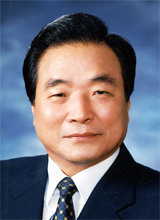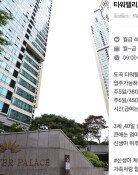Former Prime Minister Lee Han-dong died at 87
Former Prime Minister Lee Han-dong died at 87
Posted May. 10, 2021 07:20,
Updated May. 10, 2021 07:20

Former South Korean Prime Minister Lee Han-dong on Saturday passed away at the age of 87 due to a chronic disease, making his mark in South Korean modern political history as a peacemaker who dreamed of integrity across the political spectrum.
Born in 1934 in Pocheon, Gyeonggi Province, Mr. Lee graduated Kyungbock High School to make his way into School of Law at Seoul National University. After passing the national judicial examination, Lee started his legal career as a judge at the Seoul District Court and later moved to the Seoul District Public Prosecutors' Office where he led a special inspection department and a criminal department.
Elected as a member of the 11th National Assembly in Pocheon in 1981, Mr. Lee won the general elections for six consecutive times. After serving as domestic affairs minister under the Roh Tae-woo’s administration, he took charge of all three main positions of the ruling party as a floor leader, secretary general and chief policymaker. Even in pursuit of dialogue and compromise between the ruling party and opposition, Mr. Lee was nicknamed a razor-sharp decision-maker as he took bold action in moments of decisiveness.
Leading the United Liberal Democrats back in 1999, Mr. Lee helped forge a coalition among former South Korean President Kim Dae-jung and former Prime Ministers Kim Jong-pil and Park Tae-joon. He served as prime minister under the Kim Dae-jung's administration, becoming the first ever prime minister nominee who passed a confirmation hearing in the National Assembly since the beginning of the constitutional government.
“The ocean does never decline any type of drip water.” Just as his motto goes, the former prime minister set a great example of practicing integration and dialogue in politics. One of the greatest political leaders in South Korean modern political history, Lee said in a memoir written in 2018 titled "Politics is a Daunting Mission” that political leaders are not supposed to seek their personal success or interests. “It takes sacrifice for you as a political leader to safeguard your country and citizens with a heavy sense of historical responsibility. This is how you can contribute to national prosperity and unification while making sure that citizens enjoy wellbeing and happiness.”
Kyung-Suk Kang coolup@donga.com
Headline News
- Med professors announce intention to leave hospitals starting Thursday
- Bridge honoring Sgt. Moon Jae-sik unveiled in Pennsylvania
- Chief of Staff Chung tells presidential secretaries to stay away from politics
- US FTC bans noncompete agreements
- N. Korea launches cyberattacks on S. Korea's defense companies







